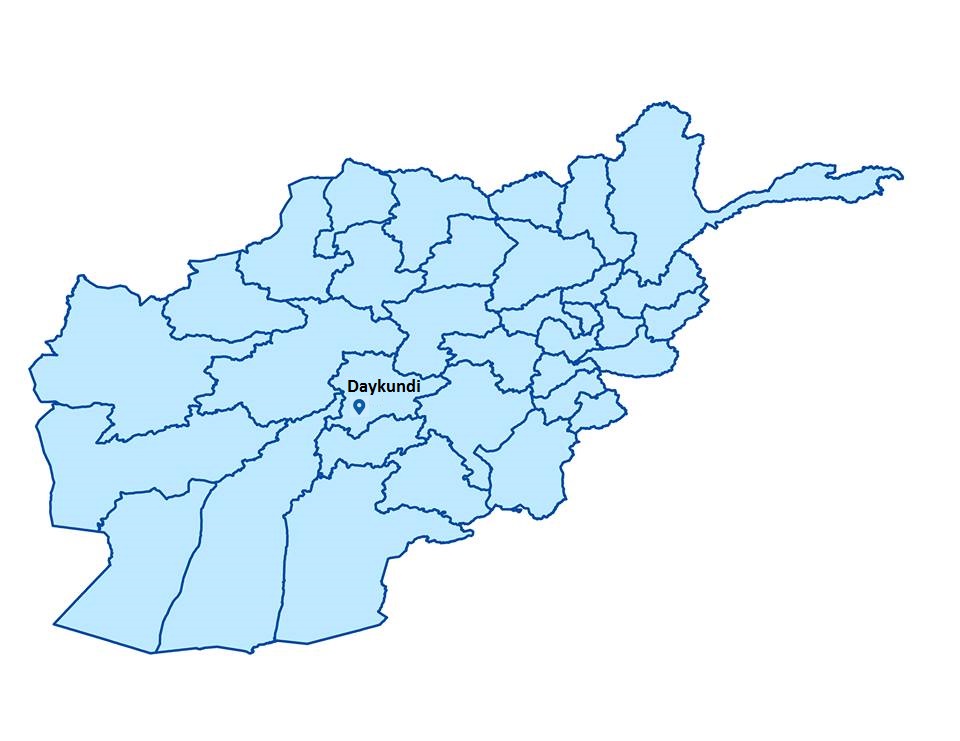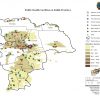System Enhancement for Health Action in Transition (SEHAT):
Executive Summary:
This is a MOPH /World Bank funded project designed to provide quality and equitable BPHS to the targeted population of Daikundi province under the stewardship of the MoPH and to reduce avoidable morbidity and mortality among Daikundi population, especially women and under five children. The project started on first Jan 2017 and completed in 30 June 2017.
This report covered 6 months project implementation period started January 01, 2017 until June 30, 2017. Inception and close out phases of project implementation carried out as per set timeline, office set up, requirement of key project staff, hand over and take over process of goods, staff, and health facilities, updating inventories were main preformed tasks during the start and close out of the project. During implementation phase services delivery performed according to BPHS package and all 39 HFs were functional and staffed with at least one health service provider.
Health services were delivered according to the BPHS components comprising of Maternal and Newborn care, Child Health and Immunization, Public Nutrition and growth monitoring, Communicable Disease treatment and control, Mental Health, Disability and Physical Rehabilitations, Dental care, Eye care and Regular supply of Essential Drugs. The BPHS/SEHAT project covered all 8 districts of Daikundi province and designed to provide health care to a total population of 436,329 residents under project coverage area through 39 health facilities (HFs). consists of 3 District Hospitals (DHs), 1 Comprehensive Health Center Plus (CHC+), 6 Comprehensive Health Centers (CHCs), 11 BHC, 15 Sub Centers (SHCs), 1 Prison Health Center (PHC), 2MHTs as well as 332 Health Posts (HPs). All health facilities were fully functional and staffed with at least one female health worker. 39 HFs (100%)were functional and staffed with at least one female health provider.
BDN continued provision of service delivery at the community through a network of 332 HPs, (382 females and 266 male totally 664 CHWs) to their related catchment areas according to standard CHWs curriculum.
A total number of 56 sessions of open door event conducted to all 39 HFs for awareness of community on availability of the health services in their health during reporting period.
CAAC survey successfully conducted during April to end of May 2017, collected data analyzed reviewed at provincial and Head office level and submitted along with technical quarter report to MoPH.
Quarterly Medical and none medical supplies provided to all HFs.
Baseline assessment of quality Improvement completed in 16 HFs. the score sheet and assessment tools shared with staff of HFs. Learning session and two round of coaching visit of HQIP conducted in 10 HFs that HQIP implemented. Totally three HFs gain over of 90 scores and recognized by HQIP and rewarded officially.
Supportive supervisory visits conducted to all 39 HFs (100%). moreover, routine supportive supervision conducted by CBHC team from HPs, joint visit of 150 HPs conducted in participation of cluster supervisors of BDN jointly with CBHC team during the reporting period.
NIDs supported by SEHAT staff. EPR committee meetings conducted regularly, the EPR plan and guideline available at all HFs and Office level.
A comprehensive training need assessment (TNA) of HF staff developed and submitted to all HFs. CSKT plan prepared according finding of the training need assessment and completely implemented during six-month of project life. A total number of 223 health staff including (Female 90 and Male 133) received trainings in related subjects. For more information, refer to capacity building table in article No/8:
Awareness raising campaigns for the EPI conducted in all eight districts of Daikundi provinces by EPI team of BDN Daikundi sub office and vaccinators as part of regular quarterly bases plan. Roundtable sessions conducted about health topics and public health issues among community members, provincial health team broadcast through local FM health radio in a live manner.
OTP services provided through 11 BHCs, 1 CHC+, 6 CHCs and 3 DHs.
Waste management focal points were assigned and IP committee meetings conducted on monthly based in all HFs, for proper implementation of health care waste management and waste disposal. All 6 CHCs and 1 CHC+ provided psychosocial counseling to eligible clients by 7-trained psychosocial counselors during the life of project.
During the reporting period new medical equipment were supplied to all HFs based on a comprehensive assessment.
Night duty performed by male and female staff in all related health facilities including 24 hours’ ambulatory services and regularly monitored by a team from provincial office.


